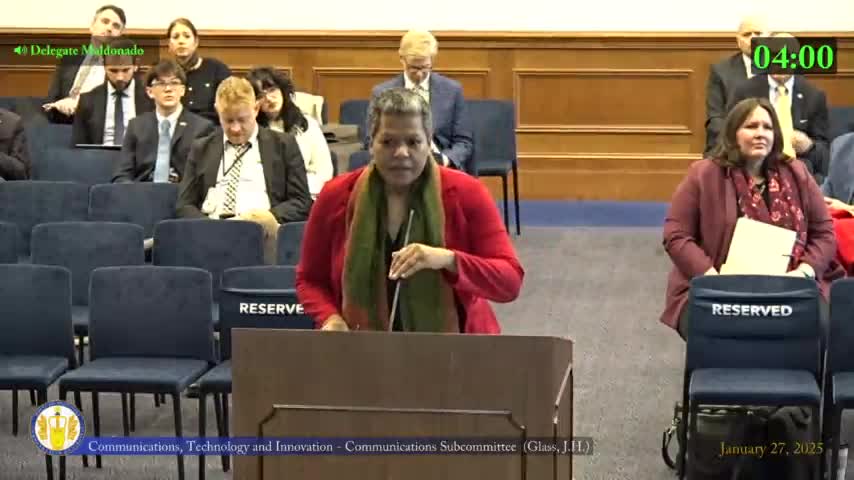Subcommittee advances AI ‘high risk’ bill after lengthy debate; supporters say it prevents bias, industry calls it burdensome
Get AI-powered insights, summaries, and transcripts
Subscribe
Summary
House Bill 2094, which would impose risk-assessment and transparency requirements on developers and deployers of high-risk AI systems used in consequential decisions, was reported from subcommittee and referred to appropriations after divided testimony and a 6–4 vote.
A Virginia House subcommittee voted to report House Bill 2094 and refer it to the Appropriations Committee after lengthy testimony both supporting and opposing the bill’s approach to addressing potential harms from high-risk artificial intelligence systems.
Delegate Delia Maldonado, the bill sponsor, described HB 2094 as a targeted framework applying only where three conditions intersect: an artificial-intelligence system, a high-risk category and consequential, automated decisions that affect people’s lives. She said the bill requires developers and deployers — and in some cases integrators — to perform impact assessments, follow NIST/ISO risk-management standards and provide transparency measures before systems are used in areas such as employment, lending, housing, education and justice.
“This bill establishes an AI framework that both keeps Virginia … a place of competitiveness and innovation while also balancing its duty and responsibility to protect and empower and inform its people,” Maldonado said.
Supporters included industry participants and civil-society groups who said assessments and safeguards would help prevent discriminatory outcomes. Jay Jessam of the Transparency Coalition said the bill “will bring much needed clarity and accountability to AI developers and deployers” and praised the bill’s use of NIST and ISO standards.
Opponents, including policy organizations and some industry witnesses, warned the bill would impose costly compliance burdens that could chill innovation and favor large incumbents. Adam Thierer of the R Street Institute called the proposed regime “unnecessary, burdensome and will undermine the successful policy model” that helped Virginia’s digital economy, and warned of paperwork and compliance costs for smaller firms.
Major technology and telecom providers raised specific objections in person and in writing: Verizon opposed third‑party audit requirements and flagged the bill’s definition of “integrator” as potentially harmful to commercial relationships; broadband associations said they wanted continued negotiation. Supporters and industry negotiators told the committee the sponsor had incorporated many changes and offered to continue working on open issues.
Committee members acknowledged the complexity and said the substitute narrows some obligations and includes carve-outs, a cure period and a delayed enactment date to allow adjustment. After debate, the subcommittee voted to report the bill and refer it to Appropriations on a vote of 6 to 4.
The referral sends HB 2094 to the appropriations committee for fiscal review; if it survives there it would return for further floor consideration. The bill’s supporters and critics said they plan ongoing negotiations on audit language, the integrator definition and enforcement details.
